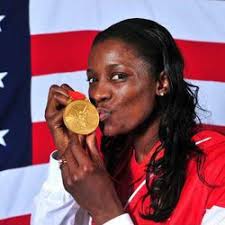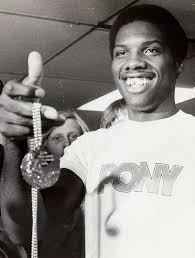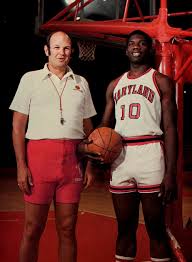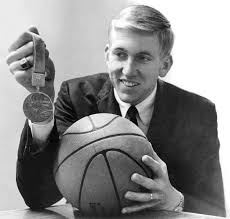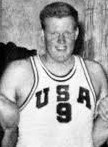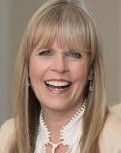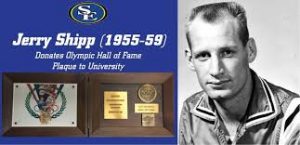The NBA Finals date back to 1947 (when they were known as the Basketball Association of America Finals) and the very 1st NCAA tourney was held in 1939. Olympic basketball competition is even older: it debuted as a demonstration event in 1904 and the men’s version became a medal sport in 1936, with the women finally getting their chance to go for the gold in 1976. The United States has dominated Olympic basketball competition from the start: the men have won 15 gold medals in the 18 tournaments they have participated in during the past 84 years, while the women have won 8 gold medals in the 10 tournaments in which they have competed during the past 44 years. Those of you who were looking forward to the 2020 Olympics opening ceremonies in Tokyo on July 24, 2020 will have to wait an extra 364 days, as the coronavirus caused a postponement until July 23, 2021. Due to the absence of college basketball since mid-March, HoopsHD’s Jon Teitel decided to fill the void by trying to interview as many prior Olympic players/coaches as possible so that you have something to read this summer while not watching the Summer Games. We continue our coverage by chatting with Jim Forbes about playing in 1 of the most controversial basketball games ever. Today is his 68th birthday so let us be the 1st to wish him a happy 1!
In 1970 you were an All-American at Bel Air High School in El Paso: what made you choose UTEP? UTEP had the best program/coach of any school who was recruiting me. I remember them winning it all in 1966 and they were the best fit.
You played for Hall of Fame coach Don Haskins: what made him such a great coach, and what was the most important thing that you ever learned from him? He was a strict disciplinarian, which I knew going in, so I knew that it would not be easy. I liked his no-nonsense approach to everything.
You played for team USA at the 1971 Pan American Games: which of your teammates impressed you the most (Bob McAdoo/Paul Westphal/other)? I was impressed by both of them: they were both great players and proved that during their NBA careers. They also became good coaches.
You were not originally selected to be a member of team USA at the 1972 Olympics: how did it feel to get added after John Brown came down with an injury, and did it help that Haskins was 1 of the USA assistant coaches? Brown had played for Coach Hank Iba so it was difficult to make the team. I tried to stay in good condition and see what happened. John got hurt and I got a call.
Terrorists murdered 11 Israeli athletes/coaches just a few days before the gold medal game: how was your team able to stay focused in light of the tragedy that took place in the Olympic Village? That is a difficult question that requires a difficult answer. It was extremely hard to stay focused and a lot of people thought that the Olympics should have just been called off. Words cannot describe the tragedy but some people thought that if we just went home then the terrorists would have won. The ultimate decision was made for the Games to go on so we just decided to stay and compete.
The US suffered its 1st-ever Olympic loss at the hands of the USSR in the gold medal game by a score of 51-50: who do you blame the most for the controversial loss (Bill Walton for not playing, Hank Iba for using a slow tempo, the Secretary General, the timekeeper, the refs, other), and why is no medal better than a silver medal? I have never heard the question asked that way. Walton was the premier player of our era and 1 of the best ever but I will not criticize him and I respect his reasons. I will also not second-guess my coach for his style of play: had the game ended the way it should have then nobody would have questioned the tempo. To accept the silver medal would also be acceptance of losing that game and we felt that simply did not happen. It was a tough decision but as a group we knew that we had legitimately won a gold medal. The Soviet players felt that way as well. If you re-watch the game we did not play very well and the Soviets had a great team so they were not just going to melt once we walked onto the floor. I give credit where it is due but we were also well-coached. Everyone has their points but that is just how I feel.
In the spring of 1974 you were drafted in the 4th round by Chicago: how bad was the knee injury that kept you out for an entire year? The day I got drafted I was sitting in my apartment with a swollen knee. The draft was not televised back then but I like watching it on TV now. When we flew back from the Olympics I hurt my knee but I had no idea of the extent of the harm, which later required 2 surgeries. I was surprised to get drafted because I knew how bad my knee was: I was glad to get drafted but was not expecting it.
You later spent 3 years as an assistant to your former coach at your former school: how did working for Haskins compare to playing for him? Playing and working for him were 2 different things. He was a tough taskmaster both to play/work for but I learned so much during my time there.
You won 650 games as a high school coach and in 2018 Riverside High School named its gym after you: what is the key to being a good coach? It takes a few years to find out who you are, which is fine, but you also need to adapt to the changing times. I had to adapt to new techniques/strategies/rules as well as new players. I remember when Michael Jordan 1st started wearing an earring: coaches used to not accept that but eventually they learned to deal with it because as long as kids still work hard it is fine. Our offensive/defensive sets have not changed that much over the past few decades. The bottom line is can you put the ball in the hole and stay behind someone. We can pat ourselves on the back as coaches but kids still have to play/execute while you give them a little free reign on the floor.
When people look back on your career, how do you want to be remembered the most? As a guy who played as hard as I could for as long as I could. As a coach I tried to be honest with my players and did the best I could for the team.


